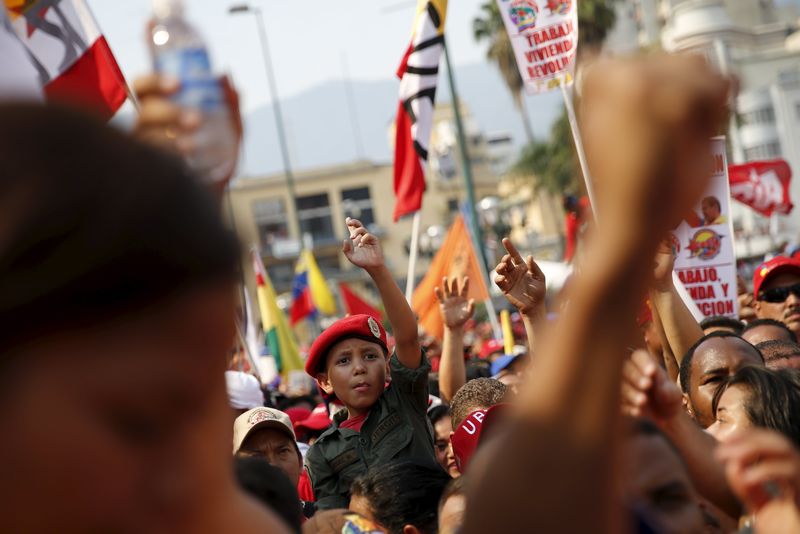BRASILIA (Reuters) - Brazil urged Venezuela's government on Thursday to set a date for a parliamentary election as soon as possible, stepping up pressure on its leftist ally and neighbour to resolve a simmering political crisis.
Brazilian Foreign Minister Mauro Vieira said he met with Venezuelan government officials this week and told them a date must be set quickly for the National Assembly election that is meant to be held before the end of the year.
"I insisted that elections should be called as soon as possible and held within the legal time frame," Vieira said at a news conference.
Venezuelan President Nicolas Maduro's opponents see the parliamentary election as a chance to capitalise on widespread discontent over a deepening economic crisis and advance towards ending more than 15 years of socialist rule.
Surveys show Venezuela's opposition leading in projections of voters' intentions and Maduro's popularity has slipped since he took office two years ago after the death of Hugo Chavez.
Dates for internal party primaries have been set, but the lack of a date for the parliamentary vote has led some opposition politicians to doubt whether the election will be held at all.
Vieira spoke to reporters after the wives of Venezuela's two most prominent jailed opposition leaders visited Congress and were applauded by lawmakers, including members of parties in President Dilma Rousseff's governing coalition.
Rousseff and her Workers' Party have faced increasing criticism for maintaining close ties to Maduro. Brazil's Senate on Tuesday passed a resolution criticizing Maduro's government for arbitrarily imprisoning opponents.
"A nation like Brazil that has a president who was once a political prisoner cannot keep silent when it sees a neighbouring country keep almost 90 political prisoners," said Aecio Neves, leader of Brazil's centrist PSDB opposition party.
"It is time the Brazilian government acted in defence of democracy in Venezuela," he said at a meeting with Mitzy de Ledezma and Lilian Tintori, wives of the jailed Venezuelan opposition leaders.

Rousseff did not agree to meet with them but sent a letter in which she said Brazil was "tirelessly" seeking a peaceful resolution to Venezuela's political crisis.